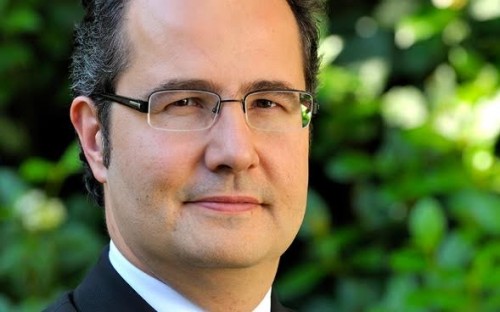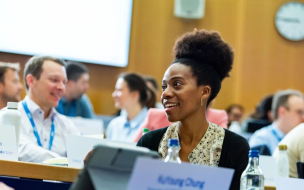As new competitors - multinational corporations and online educational technology platforms like Coursera - offer alternative courses, business schools will need to re-evaluate their offering and differentiate themselves to compete.
Since its inception - the result of a merger between two existing French business schools in late 2009 - SKEMA has done just that. SKEMA offers a project management-focused Executive MBA (EMBA) program combining fully-synchronous online learning with international weeks in Lille, Oslo, Shanghai, Dallas, and Belo Horizonte in Brazil.
The EMBA is considered 100% international (there are no French students), class sizes range from 20 to 45 students, and participants have an average of 20 years’ professional experience.
In November 2016, the SKEMA EMBA gained full AMBA Accreditation. With it, SKEMA joined the exclusive circle of the 1% of international business schools with the EQUIS, AACSB and AMBA triple crown. SKEMA achieved triple accreditation in only three years.
As the battle in business education intensifies, SKEMA is preparing itself to compete. We spoke to Patrice to find out more.
How will business education change over the coming years?
In the next 5-to-10 years, we’ll see more changes than we’ve seen in the last 20. The competition will be fiercer than ever. New competitors will try to disrupt the market and we’ll see more and more competitors from different parts of the world.
New online competitors – like the Massive Open Online Courses (MOOCs) – are offering free or low-cost programs, and are now trying to offer programs in conjunction with business schools. That will be a challenge. We’ll see consortium of companies that will probably create their own degrees. And Africa will be the next frontier.
In terms of the EMBA, I think general management EMBAs won’t be so important. For younger MBA students, a general management program is understandable. When you are a 40-year-old EMBA student, you’re looking for a much deeper specialization.
How will SKEMA compete?
Our EMBA program is mainly focused on project management. That differentiator has been a key part of its success. And to have six campuses worldwide is quite a unique value proposition. Whether you’re learning marketing or business management, what you’ll be learning in Africa, Europe, the US, or South America, will be different because of the context. We give our students an education in four continents.
The next key target is to make the school even more global; to develop our different campuses, to develop executive education, recruit more students, and serve companies in different parts of the world.
We are also thinking about developing new campuses in emerging markets in Africa and Eastern Europe. The world is growing faster than ever and we need to give students an understanding of emerging markets and the new opportunities there.
Why is accreditation important?
We are fighting for the best participants all over the world. Accreditation gives you that next level of international recognition and credibility. It’s the foremost signal of quality for a school. The fact that we’ve been able to reach this triple crown is a result of many decades of evolution of the school. It’s a positive signal, proving that our global strategy has been seen as a success.
What do you look for in your Executive MBA applicants?
Most of our students have worked in companies for 10-to-15 years before the EMBA. We try to recruit people who are ready to learn from the school and also to give to the school, to the program, and to their classmates. We try to identify people who are open-minded and innovative, who understand global diversity, who question themselves and the value they can offer to their company.
RECAPTHA :
1c
72
f7
74








